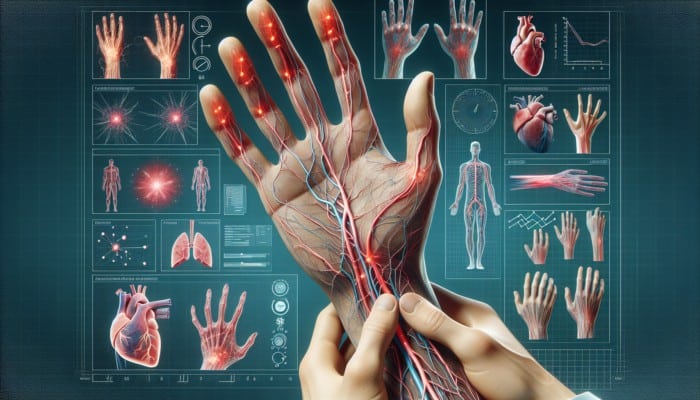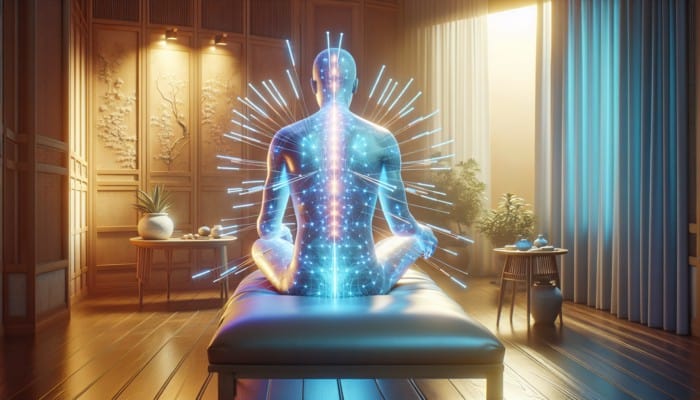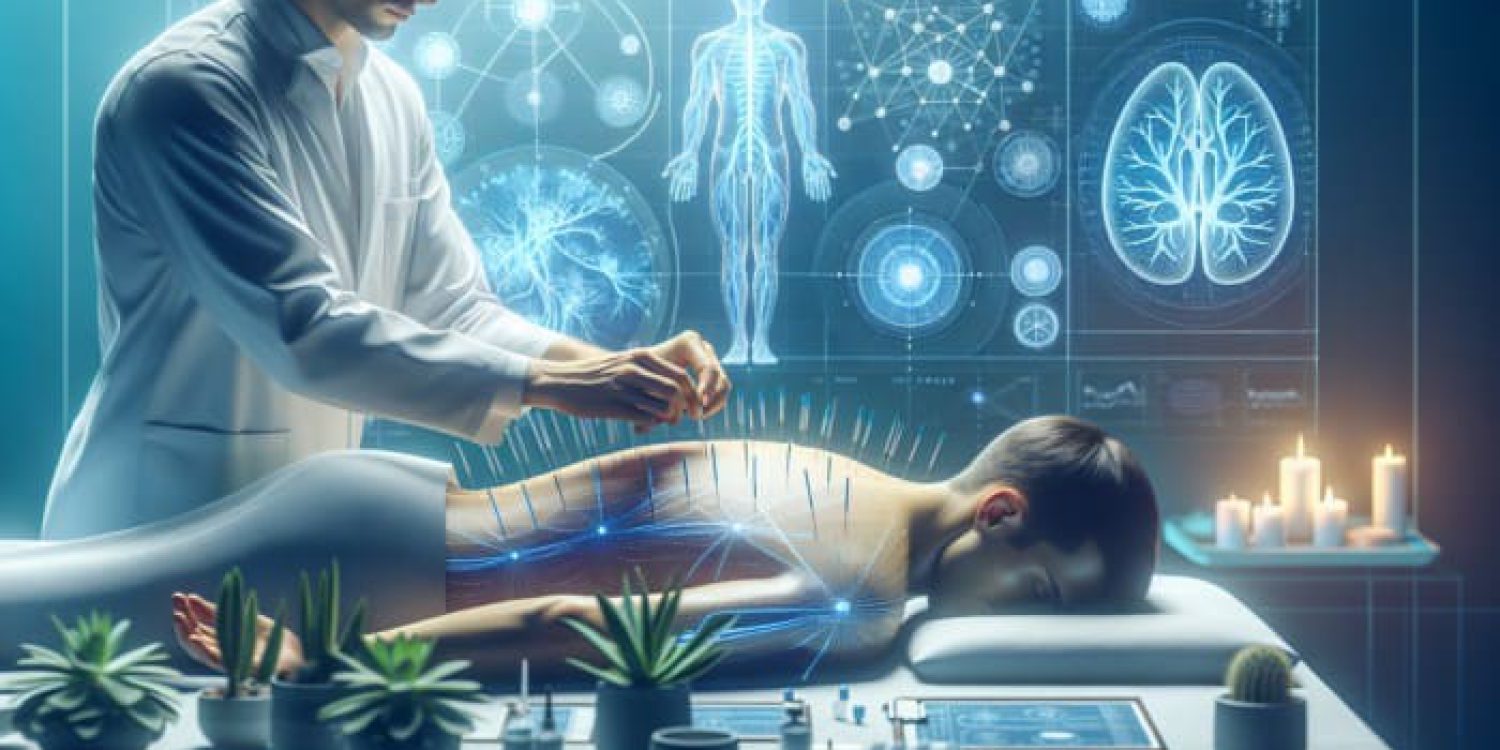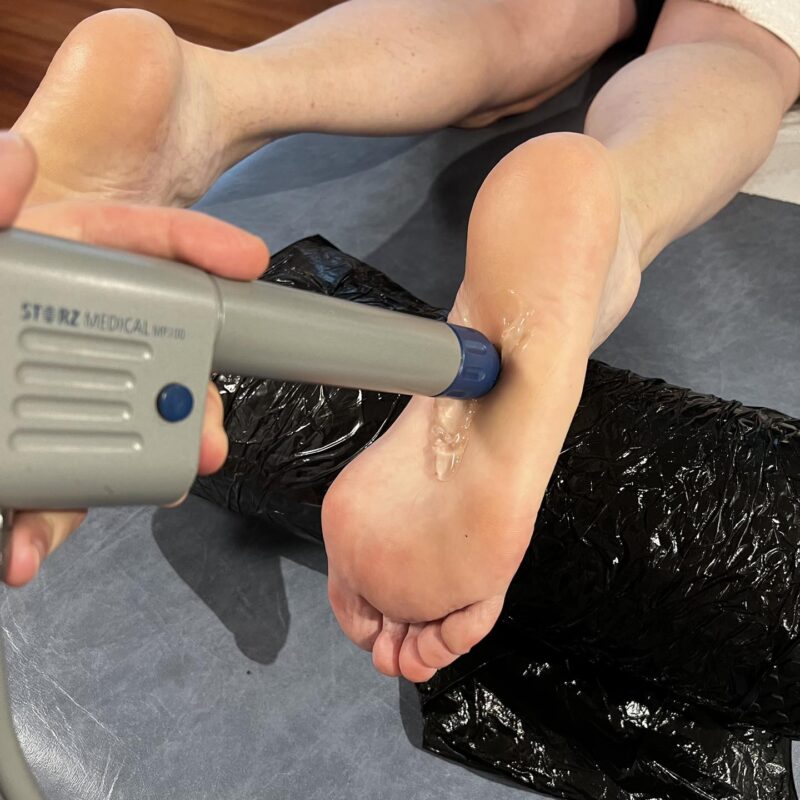Unlocking Neuropathy Relief with Acupuncture: A Comprehensive Guide
Defining Neuropathy: Understanding Nerve Damage and Its Impact

Neuropathy relief encompasses a variety of conditions that affect nerve health and functionality, leading to distressing and debilitating symptoms. This term broadly refers to damage or dysfunction of the peripheral nerves, which can arise from many causes including diabetes, chemotherapy treatments, or even physical injuries. Individuals suffering from neuropathy often experience symptoms such as tingling, burning sensations, numbness, and sharp pain, particularly in the hands and feet. These sensations can significantly hinder daily activities, making even simple tasks daunting.
It's essential to grasp the varying degrees of neuropathy, as its impact can differ widely from person to person. For some, it may present as mild discomfort, while others may endure unrelenting pain that disrupts sleep and normal everyday activities. The origins of neuropathy are multifaceted, often necessitating a comprehensive approach to treatment. As we delve into the benefits of acupuncture for neuropathy relief, it is vital to appreciate the intricacies of this condition and the holistic strategies that can effectively manage it.
Exploring the Mechanisms of Acupuncture: How It Promotes Healing
Acupuncture, a fundamental aspect of traditional Chinese medicine, is founded on the belief that vital energy, or “Qi,” circulates through designated pathways in the body known as meridians. When this energy becomes obstructed or imbalanced, it can result in pain and functional impairment. By strategically inserting fine needles into specific points along these meridians, Acupuncture seeks to restore equilibrium and stimulate healing processes.
This practice transcends pain relief; it actively supports the body's innate healing mechanisms. The stimulation of targeted acupoints enhances blood circulation, diminishes inflammation, and prompts the release of endogenous opioids—the body's natural pain relievers. This intricate interplay between physical and mental states cultivates a calming and often transformative experience. Patients receiving acupuncture for neuropathy relief frequently discover that these sessions not only alleviate physical discomfort but also nurture a profound sense of holistic well-being.
Investigating the Scientific Evidence: Acupuncture's Role in Neuropathy Treatment
A wealth of studies has explored the efficacy of acupuncture in managing neuropathy, and the results are encouraging. Research indicates that acupuncture can lead to substantial reductions in neuropathic pain, with some findings suggesting that patients experience prolonged relief even after completing their treatment regimens.
For example, a study published in a prominent medical journal highlighted individuals with diabetic neuropathy who reported significant improvements following a series of acupuncture sessions. These findings imply that acupuncture alleviates pain and fosters enhanced nerve function and regeneration.
The medical community is increasingly acknowledging the promise of acupuncture as a complementary therapy for neuropathy. Its potential to minimize reliance on pharmaceuticals—which often entail adverse side effects—makes acupuncture an attractive option for many individuals seeking relief. As we further investigate the benefits of acupuncture for neuropathy relief, it's crucial to weigh both anecdotal experiences and the growing body of scientific evidence supporting its effectiveness.
Exploring the Key Advantages of Acupuncture for Neuropathy Relief

Effective Practical Management with Acupuncture
One of the most prominent benefits of acupuncture for neuropathy relief is its exceptional capacity to alleviate pain. Neuropathic pain can be incredibly challenging to address, frequently resisting traditional treatments. However, acupuncture offers a holistic approach that targets the underlying causes of discomfort rather than simply masking the symptoms.
Clinical trials have consistently shown that patients undergoing acupuncture report significant decreases in pain levels, largely due to the release of endogenous opioids and other neurochemicals triggered during treatment. Furthermore, acupuncture can mitigate inflammation—a common contributor to pain—by enhancing blood flow to affected areas.
For many patients, pain reduction is often accompanied by a profound sense of relaxation and emotional upliftment. This makes acupuncture not just a physical remedy but a holistic healing experience. Patients frequently express that following their sessions, they feel a serene calmness that enhances their overall quality of life. The proven effectiveness of acupuncture in managing pain positions it as an invaluable component of any comprehensive neuropathy relief strategy.
Enhancing Nerve Function Through Acupuncture
In addition to pain relief, acupuncture has demonstrated promising potential in improving overall nerve function. Neuropathy often results in decreased nerve activity, exacerbating sensations like numbness and tingling. By stimulating specific acupoints, acupuncture encourages nerve regeneration and promotes effective communication between nerves and muscles.
Research suggests that acupuncture can elevate the production of nerve growth factor (NGF), a protein pivotal for nerve cells' growth, maintenance, and survival. This biochemical response can facilitate the recovery of damaged nerves, improving sensory perception and motor function.
Patients receiving acupuncture for neuropathy relief often report heightened sensitivity and awareness in their extremities. This significantly enhances their daily activities while minimizing feelings of isolation commonly associated with neuropathy. The restoration of nerve function alleviates discomfort and empowers individuals to reclaim their lives.
Low-Risk Treatment with Minimal Side Effects

When considering treatment options for neuropathy, potential side effects are often a significant concern. Unlike many conventional medications that can lead to numerous unwanted effects, acupuncture is typically well-tolerated and associated with minimal side effects.
Most patients may experience slight soreness or a temporary increase in symptoms after their initial sessions, but these sensations are generally short-lived. This gentle approach to treatment is particularly appealing for individuals who may be apprehensive about the side effects linked to pharmaceuticals or invasive procedures.
Moreover, acupuncture is a non-invasive therapy that stimulates the body's natural healing processes. This feature makes it a safe alternative for those who might not be ideal candidates for more aggressive treatments. As you contemplate acupuncture for neuropathy relief, knowing that it presents a low-risk option with the potential for significant benefits can instill confidence in your treatment choices.
Practical Applications and Techniques of Acupuncture for Neuropathy Relief
Selecting the Right Acupoints for Optimal Results
The effectiveness of acupuncture for neuropathy relief heavily depends on the careful selection of appropriate acupoints. Each point corresponds to specific symptoms and underlying causes, so choosing acupoints is essential for achieving the best results.
Frequently used acupoints for neuropathy include LI4 (Hegu), ST36 (Zusanli), and SP6 (Sanyinjiao), among others. LI4, situated between the thumb and index finger, is recognized for its pain-relieving properties. ST36, located on the lower leg, enhances overall vitality and strengthens the immune system. SP6, found on the inside of the lower leg, is particularly effective for alleviating discomfort in the lower body.
Choosing the right acupoints requires a comprehensive understanding of the individual's symptoms and medical history. An experienced acupuncturist will conduct a thorough assessment to customize the treatment plan. Personalization is key to success, and identifying the optimal combination of acupoints can lead to remarkable relief and improved quality of life.
Determining Frequency and Duration of Acupuncture Sessions
Establishing the frequency and duration of acupuncture sessions is crucial for maximizing treatment benefits. While individual requirements may differ, a most common recommendation is to initiate therapy with weekly sessions for four to six weeks. This regularity enables the body to adapt and effectively respond to treatment.
As patients notice improvements, the frequency of sessions may be adjusted to bi-weekly or monthly treatments, depending on symptom severity and individual response. Each session typically lasts 30 to 60 minutes, providing sufficient time for the practitioner to evaluate progress and make necessary modifications.
Consistency is vital for achieving neuropathy relief through acupuncture. Regular sessions reinforce the benefits of treatment and foster a therapeutic rapport between the patient and practitioner, enhancing the overall experience and outcomes.
Integrating Acupuncture with Complementary Therapies
Combining acupuncture with other therapeutic modalities can significantly enhance its efficacy in managing neuropathy. Many patients discover merging acupuncture with physical therapy, massage, or dietary adjustments leads to more comprehensive results.
For instance, physical therapy can focus on improving mobility and strength, while acupuncture addresses pain and nerve function. This multifaceted approach enables patients to tackle their symptoms from various angles, resulting in a more holistic healing experience.
Lifestyle modifications, such as a nerve-friendly diet rich in antioxidants and omega-3 fatty acids, can complement acupuncture treatments. These dietary changes promote nerve health and support the body's natural healing mechanisms.
As you embark on your journey toward neuropathy relief, consider discussing integrative options with your acupuncturist. A collaborative approach can yield transformative results, empowering you to take charge of your health.
Real-Life Success Stories: Acupuncture Transforming Lives
Case Study: Overcoming Diabetic Neuropathy
One compelling case study showcases the journey of a patient suffering from diabetic neuropathy. After years of grappling with chronic pain and discomfort in her feet, she turned to acupuncture as a last resort. Initially hesitant, she committed to weekly sessions lasting about 45 minutes.
Throughout her treatment, she observed a significant reduction in pain levels and improved overall mobility. The tingling and numbness that had once dominated her daily existence began to fade, allowing her to participate in activities she had long abandoned. By the conclusion of her treatment plan, she reported feeling revitalized and more in control of her health.
This success story exemplifies how acupuncture for neuropathy relief can improve quality of life, illustrating the potential for healing beyond conventional treatments.
Case Study: Recovery from Chemotherapy-Induced Neuropathy
Another inspiring account comes from a patient who developed neuropathy following chemotherapy for breast cancer. Battling debilitating pain and heightened sensitivity in her hands and feet, she sought the expertise of an acupuncturist to alleviate her symptoms.
After a thorough assessment, her practitioner crafted a customized treatment plan, focusing on acupoints known to manage nerve pain. With each session, she began to experience relief from the sharp, burning sensations that had rendered daily tasks unbearable. Over several weeks, her symptoms significantly improved, empowering her to return to her passion for painting—a previously unattainable goal.
This story poignantly reminds us of the resilience of the human spirit and the potential for acupuncture to comfort those grappling with the consequences of severe medical treatments.
Patient Testimonials: The Transformative Power of Acupuncture
Numerous patients' experiences resonate with the positive impact of acupuncture in their lives. Many express heartfelt testimonials about how this ancient practice has transformed their approach to managing neuropathy. One patient remarked, “I never imagined I could find relief without medication, but acupuncture has changed everything for me. I feel like I have my life back.”
Another individual shared, “The pain used to dictate my life, but after just a few sessions, I regained my independence. Acupuncture has been a true blessing.” These accounts highlight the transformative potential of acupuncture, not merely as a treatment, but as a pathway to reclaiming one's life from the constraints of neuropathy.
As we further explore the realm of acupuncture for neuropathy relief, it's essential to acknowledge the real-life implications and successes accompanying this practice, inspiring hope for those still seeking effective results.
Addressing Common Concerns Regarding Acupuncture for Neuropathy Relief
Understanding the Safety of Acupuncture for Neuropathy
Safety often emerges as a primary concern for individuals contemplating acupuncture as a treatment option for neuropathy. Generally, acupuncture is viewed as a safe practice when conducted by a qualified professional. Using sterile, single-use needles significantly minimizes the risk of infection, and adverse effects are rare.
Patients may experience mild discomfort or bruising at the needle insertion sites, but these sensations are typically transient. Patients must communicate their complete medical history to their acupuncturist, ensuring a safe and personalized approach to treatment. By understanding the safety profile of acupuncture for neuropathy relief, individuals can approach therapy with confidence and peace of mind.
What to Anticipate During an Acupuncture Session
Knowing what to expect during a session can help alleviate anxiety for those unfamiliar with acupuncture. Upon arrival, the acupuncturist will conduct a comprehensive consultation, discussing medical history, symptoms, and treatment objectives. This dialogue is crucial for developing a personalized treatment plan.
Patients will lie comfortably during the session while the practitioner inserts fine needles into specific acupoints. While some may feel a slight pinch or tingling sensation, many report experiencing a deep sense of relaxation as the session progresses. Sessions typically last between 30 to 60 minutes, during which the practitioner may also incorporate techniques such as heat or electrical stimulation to enhance therapeutic effects.
Understanding the process demystifies acupuncture for neuropathy relief, encouraging individuals to embrace the experience with an open mind and heart.
Financial Considerations: Cost and Insurance Coverage for Acupuncture
Navigating the financial aspects of acupuncture treatment can be daunting. Costs can vary significantly based on the practitioner's expertise, geographic location, and session duration. Many acupuncturists offer package deals that can render treatment more affordable.
Regarding insurance coverage, some plans include acupuncture as a complementary therapy. It's advisable to consult with your insurance provider to understand the specifics of your coverage. Numerous clinics offer sliding scale fees for those without insurance to accommodate diverse budgets.
As you contemplate acupuncture for neuropathy relief, being informed about costs and potential insurance benefits can empower you to make educated decisions regarding your treatment options.
Comparing Acupuncture with Other Treatment Modalities for Neuropathy
Evaluating Acupuncture vs. Conventional Medications
When exploring treatments for neuropathy, it's essential to assess the advantages and disadvantages of acupuncture in comparison to standard medications. While medications such as antidepressants and anticonvulsants can offer relief, they often come with side effects, including dizziness, weight gain, and fatigue.
In contrast, acupuncture for neuropathy relief typically presents minimal side effects, making it a gentler alternative. Many patients find that acupuncture not only alleviates pain but also enhances their overall well-being, reducing their dependence on pharmaceuticals.
While both approaches have their merits, the treatment decision ultimately hinges on the individual's circumstances. Engaging in a thorough discussion with a healthcare provider can help determine the most appropriate strategy for managing neuropathy symptoms.
Acupuncture vs. Physical Therapy: Complementary Approaches
Both acupuncture and physical therapy are crucial in managing neuropathy, albeit through different methodologies. Physical therapy strengthens muscles, improves mobility, and enhances functional abilities through structured exercise.
Conversely, acupuncture for neuropathy relief targets the underlying pain and nerve function via energy balancing and stimulation. Many patients find that integrating both therapies yields optimal results, allowing them to address both the symptoms and functional limitations of neuropathy.
Combining acupuncture with physical therapy can enrich the overall treatment experience, offering a comprehensive recovery and symptom management approach.
Considering Acupuncture vs. Surgical Interventions
In more severe cases of neuropathy, surgical options may be considered. However, surgery often carries risks, including complications and prolonged recovery periods. In contrast, acupuncture presents a non-invasive alternative that can be explored before resorting to surgical solutions.
For many patients, opting for acupuncture for neuropathy relief can lead to substantial improvements without the need for surgery. It's critical to discuss all available options with a healthcare provider, carefully weighing each approach's benefits and potential risks to discover the most suitable treatment plan.
The Future of Acupuncture for Neuropathy Relief: Emerging Trends and Research
Innovations in Acupuncture Technology
The realm of acupuncture is continually advancing, with technological innovations enhancing treatment outcomes. Novel tools such as electro-acupuncture devices and laser acupuncture are gaining popularity, providing patients with alternative methods for obtaining relief.
Electro-acupuncture incorporates the application of mild electrical currents to acupuncture needles, amplifying stimulation and facilitating deeper, more profound effects. This approach has proven particularly effective for neuropathic pain, offering patients expedited relief.
As technology continues to evolve, the landscape of acupuncture for neuropathy relief is expected to expand, unveiling new possibilities for treatment and enriching the patient experience.
New Research Findings on Acupuncture and Neuropathy
The body of research surrounding acupuncture is consistently expanding, with new studies continually emerging to validate its efficacy in treating neuropathy. Recent findings have underscored the positive influence of acupuncture on pain management, nerve regeneration, and overall quality of life for patients suffering from neuropathy.
Ongoing research will not only bolster acupuncture's credibility as a legitimate treatment option but also contribute to a deeper understanding of the mechanisms driving its success. As more healthcare providers recognize these findings, the integration of acupuncture into mainstream treatment regimens is anticipated to rise.
The future of acupuncture for neuropathy relief appears promising, with research paving the way for more expansive and broader acceptance and implementation in clinical settings.
Acupuncture's Role in Holistic Neuropathy Management
As the healthcare landscape shifts toward a more holistic approach, acupuncture is increasingly acknowledged as a valuable element of comprehensive neuropathy management. By addressing the condition's physical and emotional dimensions, acupuncture can significantly enhance overall wellness.
Incorporating acupuncture alongside lifestyle modifications, dietary improvements, and other complementary therapies creates a balanced treatment plan that addresses the multifaceted nature of neuropathy. This holistic methodology empowers patients to take control of their health, fostering a sense of agency and supporting long-term well-being.
As we envision the future, the role of acupuncture in neuropathy relief will undoubtedly continue to evolve, offering hope and healing to those in need.
Finding the Right Acupuncturist for Neuropathy Relief
Essential Qualifications for Selecting an Acupuncturist
Choosing the appropriate acupuncturist is critical in your journey towards neuropathy relief. It's vital to seek licensed practitioners who have completed accredited training programs, ensuring they possess the requisite knowledge and skills to deliver safe and effective treatment.
Additionally, consider their experience level, particularly in managing neuropathy. A practitioner with a history of successfully treating similar conditions will be more adept at tailoring a treatment plan to your specific needs. Personal recommendations and online reviews can also assist in your search, helping you find a practitioner who resonates with your preferences.
Key Questions to Discuss with Your Acupuncturist
Before embarking on your acupuncture journey, it's prudent to come prepared with questions for your practitioner. Inquire about their experience with neuropathy and their treatment philosophy. Understanding their approach can help ensure that their methods align with your expectations.
Ask about the anticipated duration and frequency of sessions and what to expect during treatment. Discuss any concerns you may have regarding safety and side effects. A knowledgeable acupuncturist will be eager to address your questions, providing reassurance and clarity.
This dialogue is fundamental to establishing a robust therapeutic relationship, laying the groundwork for successful outcomes in your neuropathy relief journey.
Evaluating Acupuncture Clinics: What to Look For
Identifying the right acupuncture clinic can profoundly impact your treatment experience. Seek clinics that prioritize cleanliness and comfort, fostering a welcoming patient environment.
Consider the clinic's overall philosophy and the practitioner's approach to treatment. A clinic that encourages open communication and values patient feedback will likely provide a more positive experience.
Take the time to read reviews and testimonials to gauge the experiences of other patients. This insight can help you identify clinics with a proven track record of success in treating neuropathy. Ultimately, your comfort and trust in the clinic will be crucial to your healing process.
Supporting Neuropathy Management Through Lifestyle and Dietary Changes
Nutrition and Diet: Essential for Neuropathy Management
Diet is crucial in managing neuropathy symptoms and supporting overall nerve health. A diet rich in antioxidants, vitamins, and essential fatty acids can nourish the nervous system and amplify the effectiveness of acupuncture for neuropathy relief.
Incorporating foods high in omega-3 fatty acids, such as fatty fish, flaxseeds, and walnuts, can help mitigate inflammation. Additionally, antioxidants in vibrant fruits and vegetables bolster the body's capacity to combat oxidative stress, which is frequently linked to nerve damage.
Consider collaborating with a nutritionist to develop a dietary plan that complements your acupuncture treatments, ensuring you provide your body with the necessary nutrients to support nerve health and recovery.
The Importance of Exercise in Neuropathy Management
Engaging in regular physical activity is another vital component of neuropathy management. Exercise can enhance circulation, strengthen muscles, and elevate mood, improving nerve function.
Low-impact activities such as walking, swimming, or yoga can particularly benefit individuals with neuropathy. These exercises promote blood flow without imposing undue stress on the body.
Integrating exercise with acupuncture for neuropathy relief can yield substantial benefits, as both strategies work in tandem to enhance overall health and well-being.
Effective Stress Management Techniques
Chronic stress can exacerbate neuropathy symptoms, making stress management techniques essential for effective treatment. Incorporating relaxation practices such as meditation, deep breathing exercises, and mindfulness can help alleviate tension and cultivate a sense of calm.
Consider exploring stress-reduction techniques alongside your acupuncture sessions. Many patients find that a holistic approach to managing their emotional well-being complements their physical treatments, improving their neuropathy relief journey outcomes.
Frequently Asked Questions About Acupuncture and Neuropathy
What exactly is acupuncture?
Acupuncture is a traditional Chinese medicine practice that involves inserting thin needles into specific points on the body to promote healing and restore balance.
How does acupuncture assist with neuropathy?
Acupuncture alleviates neuropathic pain, improves nerve function, and enhances overall well-being by stimulating the body's natural healing processes.
Is acupuncture a safe option for everyone?
While it is generally safe, acupuncture may not suit individuals with certain medical conditions. It's essential to consult with a healthcare provider before starting treatment.
How many acupuncture sessions are typically needed for neuropathy relief?
The number of sessions varies by individual, but many patients benefit from weekly sessions for four to six weeks, followed by maintenance treatments.
Can acupuncture replace medications for neuropathy?
Acupuncture can complement or reduce the necessity for medication, but it's crucial to consult with a healthcare provider before altering your treatment plan.
What can I expect during an acupuncture session?
A licensed acupuncturist will insert thin needles into specific acupoints during a session. Most patients experience minimal discomfort and often feel relaxed during treatment.
Are there any side effects associated with acupuncture?
Side effects are rare but may include mild soreness, bruising, or temporary symptom increases. These effects typically resolve quickly.
How do I find a qualified acupuncturist?
Look for a licensed acupuncturist with experience in treating neuropathy. Personal recommendations and online reviews can also assist in your search.
Can I combine acupuncture with other treatments?
Yes, acupuncture can be effectively combined with other therapies such as physical therapy, medications, and lifestyle changes for a comprehensive approach to neuropathy.
What lifestyle changes can support neuropathy management?
Integrating a nerve-healthy diet, regular exercise, and stress management techniques can enhance the effectiveness of acupuncture in managing neuropathy symptoms.


























4 Comments
Your exploration of neuropathy and its debilitating effects truly resonates with many of us who have either experienced these challenges firsthand or witnessed loved ones navigate through them. The intricate nature of nerve damage is often overlooked, yet it remarkably transforms daily life and overall well-being.
Your exploration of neuropathy and its varied effects on individuals truly resonates with me, as I’ve seen firsthand how debilitating this condition can be. My aunt has been grappling with diabetic neuropathy for several years now, and it’s heartbreaking to witness the toll it takes on her daily life. The sensations you describe—tingling, burning, and numbness—are constants in her experience, making simple acts like walking or holding a cup challenging.
It’s interesting to see such an in-depth exploration of neuropathy and its effects on daily life. As someone who has experienced neuropathy due to chemotherapy, I can attest to the profound impact those “simple tasks” can have when even slight sensations like tingling or numbness interfere with normal functions. It’s eye-opening to realize that these symptoms stem from an invisible condition that many might overlook, yet it affects quality of life so drastically.
I really appreciate how you’ve laid out the complexities of neuropathy and its impact on daily life. I can relate to this topic personally; I have a family member who has been battling neuropathy for years, primarily due to diabetes. It’s heartbreaking to see how something like a simple walk can turn into a challenge because of the constant pain and discomfort.